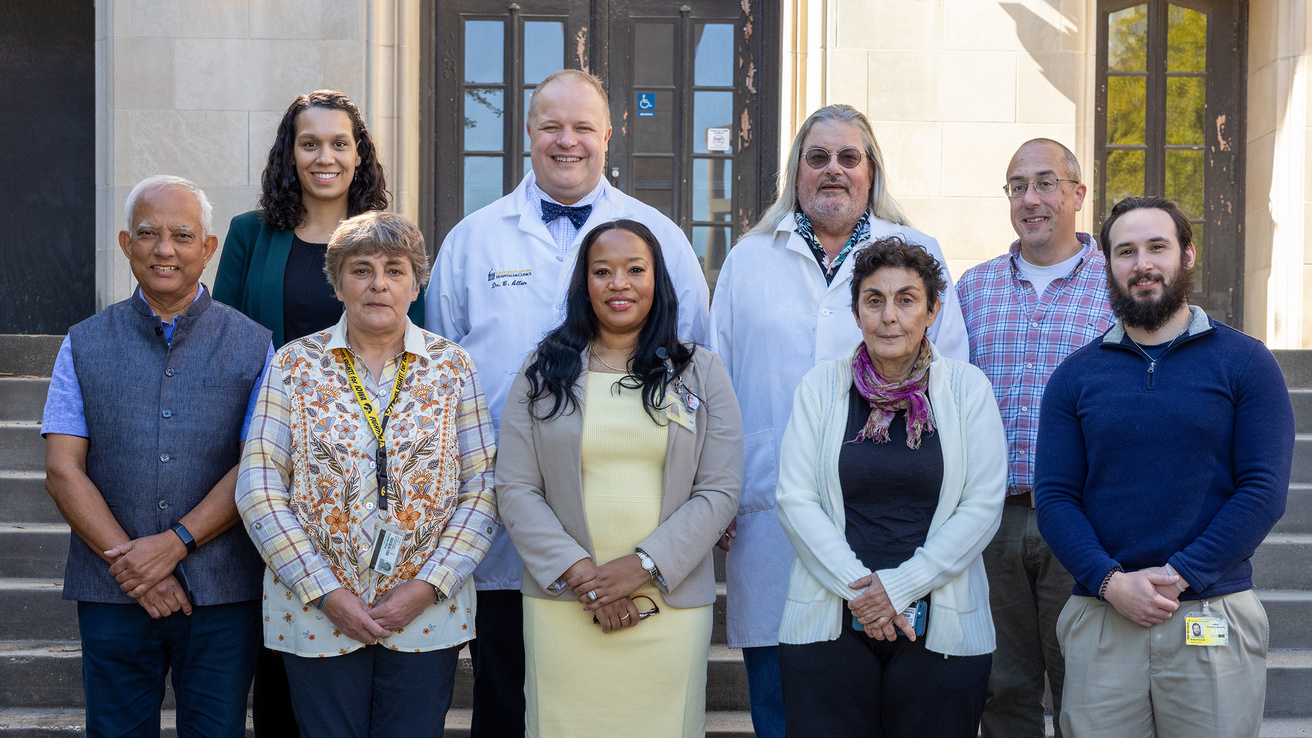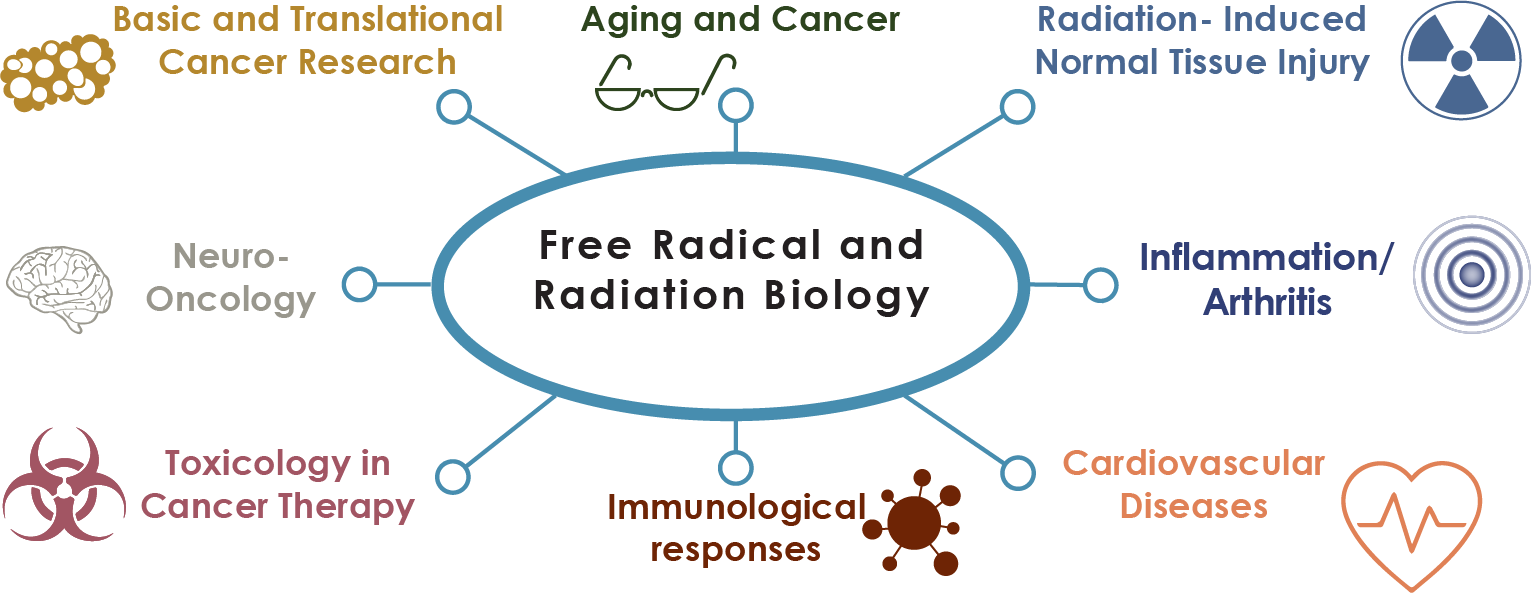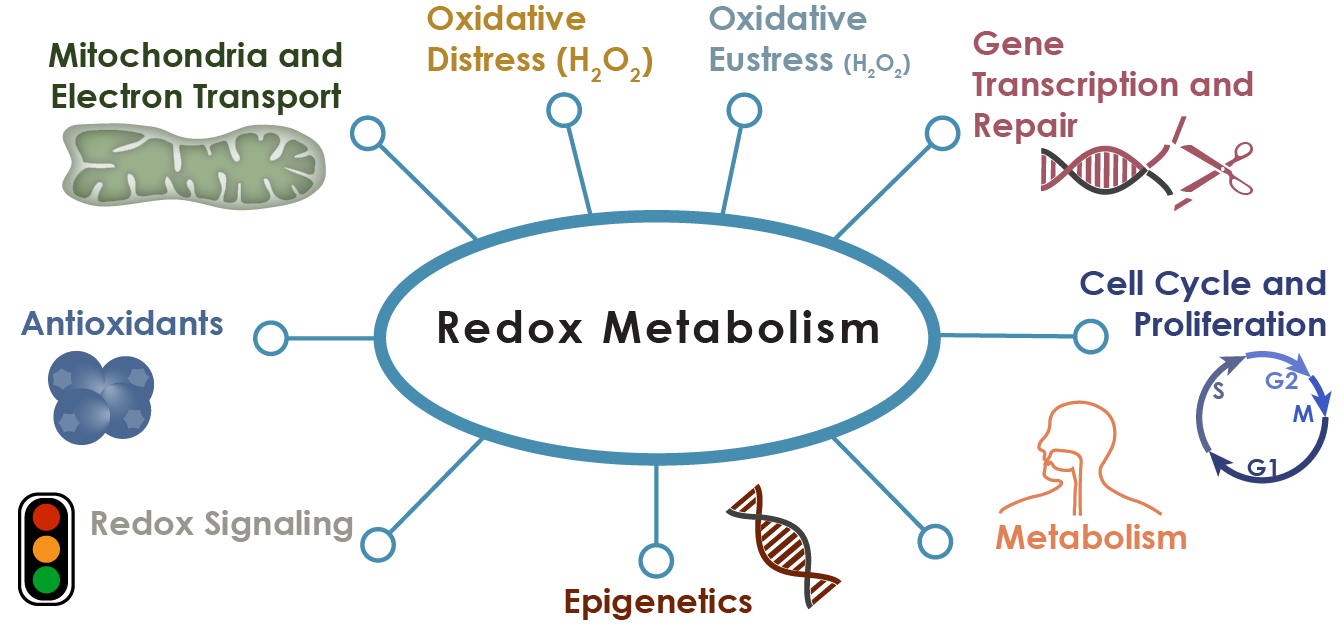
The Free Radical and Radiation Biology Program (FRRBP) is a unique, storied PhD-granting program within the Department of Radiation Oncology at the University of Iowa Carver College of Medicine. We provide graduate students the opportunity to study cancer biology and other major human diseases through a unique curriculum developed to advance redox biology through translational biomedical research and vice versa. This curriculum was developed through foundational studies of free radical and radiation biology within a research setting as close to clinical care as possible. We are the only PhD graduate program within a clinical department in the USA, providing students a more balanced education for biomedical research and the chance to directly implement your research for cancer therapy and therapy development. We are affiliated with researchers in cancer, heart disease, arthritis, wound healing, fibrosis, diabetes, cystic fibrosis and several clinical trials for redox related compounds. We have two $10M program grants affiliated with our groups and are a national leader in cancer research.
The FRRBP program is one of 7 Biomedical Science programs offered through the CLAS staffed by 7 primary and 21 secondary faculty with exposure to related fields.
The comprehensive influence of Redox Biology

Aging and Cancer | Inflammation and Arthritis
Cardiovascular diseases | Neuro Oncology
Toxicology in Cancer Therapy
Immunological responses
Basic and Translational Cancer Research
Radiation Induced Normal Tissue Injury
This describes the program focus on redox metabolism, in particular the wide range of cellular mechanisms that it involves

Research focus
The Free Radical and Radiation Biology Program has been around since 1947. It is a PhD program that trains both predoctoral and postdoctoral students in redox biology, free radical and cancer research. All our faculty are passionate about their chosen fields as well as being committed to their research, training, and mentoring of the next generation of scientists in the field.
Location
The University of Iowa is a major national research university located on a beautiful 1,900-acre campus in Iowa City in southeast Iowa, on the Iowa River. Our program has offices and labs located on the west side of campus in two buildings: B180 Medical Laboratories (ML) and in the Medical Education and Biomedical Research Facility (MERF).
We offer two programs:
1-Graduate Program in Free Radical and Radiation Biology, Ph.D. Objective:
The Free Radical and Radiation Biology Program is an interdisciplinary graduate program that provides students with a fundamental grounding in Free Radical Biology and Radiation Biology. All students devise an individualized program to apply the basics of free radical biology to their research program on the fundamental mechanisms and treatment of disease. Many students direct their scholarly activities to research on some aspect of cancer. However, students have elected to focus on a wide range of human disease. Some examples are cardiovascular disease, diabetes, human toxicology, environmental science, and immunology/infectious disease. Our goal is to educate the next generation of leaders in the student’s chosen field.
2-Postdoctoral Program in Free Radical and Radiation Biology:
The Free Radical and Radiation Biology Program has a formal Training Program for Postdoctoral Scholars. This program is supported by an NIH Training grant as well as individual research grants of faculty in the Program.
What does the Free Radical and Radiation Biology Program do?
The FRRBP is involved in three major activities related to radiation, free radical, and cancer biology at The University of Iowa; these are:
- Teaching
- Research and
- Training
Teaching: involves the organization and presentation of courses within the FRRB Program and other graduate and undergraduate courses, teaching radiation biology to residents in Radiation Oncology and Diagnostic Radiology, to fourth year medical students, and to Nuclear Medicine and X-ray technologists.
Research: in the FRRB Program is investigating the fundamental biology of free radicals and related oxidants and antioxidants in health and disease. This includes the role of these species in proliferative diseases, such as cancer; antitumor therapy; radiation-induced alterations in gene expression; redox regulation of transcription factor activation, oncogenes and suppressor genes; carcinogenesis; gene therapy; epigenetic effects; pathogenesis of radiation-induced normal tissue injury; cell population kinetics in normal and malignant tissues. All of these efforts are grounded to fundamental studies on the chemistry and biochemistry of free radicals and antioxidants.
Service: involves contributing to administration within the University and guiding the structure and evolution of science in the U.S. and beyond.
What is Redox Biology?
Redox Biology Presentation: In October, 2020, Dr Buettner presented the Sunrise Lecture at the annual meeting of the Radiation Research Society, Free radical biology: Its evolution and application. This 32-minute video provides an overview of redox biology and how it is being applied to cancer therapy here at The University of Iowa. Research in Redox Biology is a rapidly growing area of science; it is an interdisciplinary field of study.
Research ranges from studies of the fundamental chemistry of free radical and oxidant reactions, to antioxidant enzymes (their biophysics, biochemistry, biology and molecular biology), to free radical pathology, and even epidemiological studies. It is a broad area of research with many opportunities.
What is Radiation Biology?
Radiation Biology is dedicated to understanding the effects of radiation on living things. Radiation biology is closely related to free radical biology since 70-80% of the effect of radiation on cells is due to the production of free radicals. To many, the effects of radiation on living organisms are considered paradoxical; radiation is known to cause cancer, yet as administered in clinical radiotherapy, radiation represents the major anti-cancer modality in terms of successful tumor cure and patient survival. Studies on the physical, biological, and chemical changes that follow the interaction of radiation with living matter are of fundamental importance in understanding how radiation can be used to investigate normal and aberrant cell structure and function, and to diagnose and treat a variety of diseases, particularly cancer.
What is Free Radical Biology?
Free Radical Biology is the study of the interaction of free radicals in biological material. Free radicals are atoms or molecules with at least one unpaired electron. The study of free radicals is of extreme interest because of the role of free radicals and related oxidants in a large number of diseases and pathological states. As examples, cancer, aging, heart attack, stroke, diabetes, and Lou Gehrig's disease all have a free radical component. The use of free radical modulators in the prevention and treatment of these diseases is under close investigation at this time, including clinical trials. Free radicals, related oxidants (such as H2O2), and antioxidants are not just associated with disease, but they are at the foundation of the basic biology of cells, tissues, and organisms. The interplay of these species dictates the fundamental Redox Biology of life.
What resources are available?
The Free Radical and Radiation Biology Program has access to all modern facilities for research both in the individual labs and throughout the university community.
The following is a listing of resources that are available through the Carver College of Medicine and University supported facilities. Descriptions can be found at: (each link opens in a new window)
Core Facilities
Office of Animal Resources
Biochemistry Stores
Bioengineering Services
Biosafety Level III Laboratories
Biomedical Research Store
Center for Biocatalysis and Bioprocessing
Central Microscopy Research Facilities
Comparative Pathology Laboratory
Protein Structure, Analysis, & Design Core
DNA Facility
Electron Spin Resonance Facility
Flow Cytometry Facility
High Resolution Mass Spectrometry Facility
Histology Research Laboratory
Hybridoma Facility
Magnetic Resonance Research Facility
Nuclear Magnetic Resonance Facility
Protein Facility
Proteomics Facility
Radiation and Free Radical Research Core
Small Animal Imaging Facility
Transgenic Animal Facility